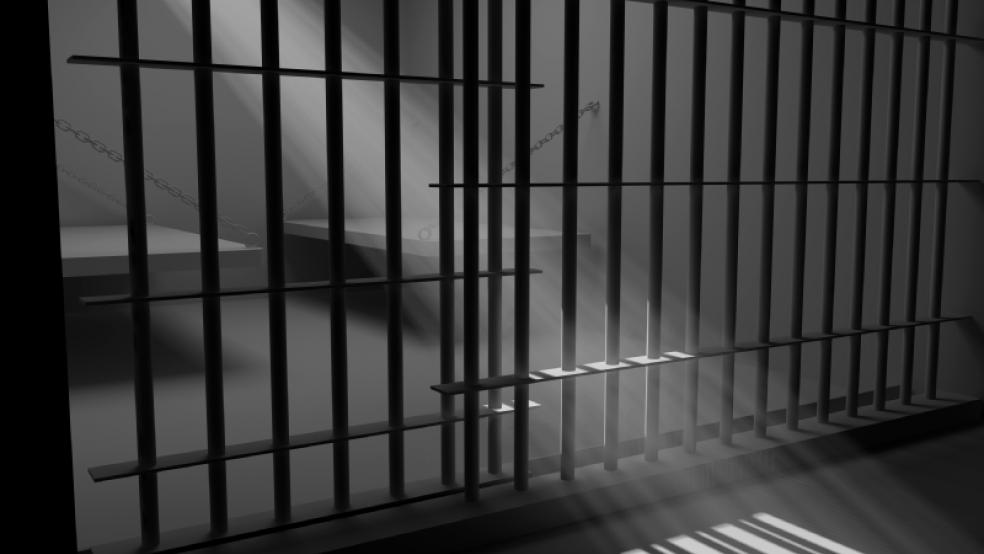Columbia University, which manages a $9.2 billion endowment, has just become the first university in the U.S. to divest from private prison companies. The move comes largely in response to protests from a university student group called Columbia Prison Divest.
The group urged the university to divest all shares from the Corrections Corporation of America, commonly known as CCA, and the British-based global security firm G4S. In addition, the group called for Columbia to pressure peer institutions into also divesting from private prison companies.
Related: Why College Professors Are Afraid to Teach Millennials
Columbia Prison Divest targeted for-profit prisons as a way of “getting at the financial engine of mass incarceration,” says Ella Every-Wortman, a Columbia student and member of the activist group.
“Ultimately we see private prisons as a small part of a much larger problem,” she adds, since “prisons are fundamentally wrong and violent and racist.”
The CCA criticized activists for not providing any solutions to the challenges prisons face. “Overcrowding and skyrocketing costs aren’t solved with politics and posturing,” says Steven Owen, senior director of public affairs at CCA, in response to Columbia’s announcement.
For-profit prisons is thought to be a $5 billion industry. Private prison companies in contract with federal and state governments either take over the management of a state-run facility or house prisoners in a privately constructed prison. The use of privately run prisons has rapidly increased over the years, as states discover it’s a way to cut costs.
Related: How the Mentally Ill Are Being Warehoused in Prisons
The general prison population in the U.S. has also grown dramatically over the years, from less than 300,000 inmates in 1972 to 2 million in 2000. The increase has continued since then: Between 2000 and 2009, the number of people held in private federal facilities increased by about 120 percent, while those held in private state facilities rose 33 percent, a report from the Justice Policy Institute found. The U.S. now holds 25 percent of the world’s prison population, yet is home to only 5 percent of the world’s population.
Cash-strapped states that are dealing with overcrowded public prisons are increasingly turning to private corporations for assistance. Mississippi, for example, has one of the highest incarceration rates in the country, with 22,481 people in prison under the Department of Corrections jurisdiction, and houses 40 percent of those inmates in private prisons.
The private prison industry reportedly pushes for continued growth, reportedly advocating for its agenda through lobbying efforts and participation in groups such as The American Legislative Exchange Council, a conservative group that drafts model legislation to promote free-market enterprise and limited government. The Washington Post reported recently that private prison companies have indirectly pushed policies that have resulted in the incarceration of more Americans and immigrants.
The CCA denies these claims. “It is CCA’s longstanding policy not to draft, lobby for or in any way promote policies that determine the basis or duration for an individual’s incarceration or detention,” says Owen.
Related: State Prisons Break Away from Soaring Cost Trends
Increase sentencing lengths and prisoner counts translate into higher revenue for the companies, which typically have occupancy guarantees built into their contracts. Nearly two-thirds of contracts that private prisons have with federal and state governments include such guarantees in the form of quotas or monetary penalties for empty prison cells. The guarantees range in each state from 80 percent to 100 percent, with 90 percent as the most frequent occupancy guarantee requirement, according to In The Public Interest, a research and advocacy group. Those guarantees mean that the government has to pay for empty prison beds anyway, leaving little budgetary incentive to reduce prison populations.
As the largest private prison operator in the U.S., CCA manages more than 60 prison facilities that house some 80,000 inmates, or more than 60 percent of all privately owned prison beds in America, according to Quartz. The company had 2014 revenues of $1.65 billion.
The Columbia University announcement comes on the heels of the release of a study that found private prisons keep inmates 4 percent to 7 percent longer than inmates serving similar sentences in public prisons, which equals two to three months. In addition, prisoners incarcerated in private prisons are 15 percent more likely to be cited for an infraction while serving their sentences, according to the report.
The prisons themselves don’t determine whether a prisoner should be released early, though. Parole boards are the deciding factor, and they usually base their decision on an inmate’s behavior. But prison management factors into those decisions. Anita Mukherjee, the Wisconsin School of Business assistant professor who conducted the recent study, found that private prisons do whatever they can to cut costs. One of the main ways they do this is hiring less experienced guards that have lower salaries and higher turnover. In an effort to maintain authority, these inexperienced guards are more likely to hand out violations to inmates, and parole boards are then influenced by these infractions.
Although Columbia Prison Divest acknowledges the university’s divestment isn’t large enough to directly impact the companies’ revenue, “what’s important is that it’s a political statement that says investing in private prisons is toxic, it’s not socially acceptable,” Every-Wortman says. “Our hope is other institutions will be urged to do the same and that then will make this impact larger.”
Top Reads from The Fiscal Times:




